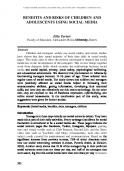False claim about dishonesty and causality_ConscienHealth_2020
This document was submitted by our user and they confirm that they have the consent to share it. Assuming that you are writer or own the copyright of this document, report to us by using this DMCA report button.
Hypothesis: Hunger Causes Dishonesty Eugenia Polizzi di Sorrentino and colleagues wanted to test a controversial hypothesis. Hunger can affect decision-making. Low blood glucose can cause hunger. So these researchers designed an experiment to show that low blood sugar can cause hunger and lead people to lie more. The measure of lying was a dice game with a payoff based on the numbers a person rolls. But individual subjects are the only ones who actually know what they rolled. So they can report higher numbers to get a higher payoff and no one can know that they lied. Nonetheless, researchers can figure out how many people are lying and how many are telling the truth. That’s because if everyone is truthful, the reported numbers would fit with a random distribution. Some people played the game in a fasted state. Others played it after they ate a breakfast.
Unexpected Results Di Sorrentino et al expected to find that people would lie more when they were hungry. But the results didn’t support their hypothesis. The researchers did, however, dig into the results and find a correlation between BMI and dishonesty. Thus, they wrote that “obese subjects lie more than lean subjects.”
Confusing Correlation with Causality Claiming that obesity has an effect on honesty fits nicely with the common patterns of weight bias. However that claim of causality – built right into the title of this paper – doesn’t fit with the design of this experiment. The experiment was a test of hunger’s effects. Not obesity. The observation about BMI and dishonesty is one of correlation, not causality. This is a distinction that makes a big difference. Honesty on this point really matters. Click here for the study and here for more on bias about the moral character of people with obesity and the harm it causes. Truth Lies at the Bottom of the Well, painting by Frances Macdonald MacNair / WikiArt

Related documents
2 Pages • 426 Words • PDF • 125.8 KB
1 Pages • 22 Words • PDF • 43.8 KB
434 Pages • 180,441 Words • PDF • 2.1 MB
127 Pages • 33,204 Words • PDF • 694.2 KB
67 Pages • 12,244 Words • PDF • 267.6 KB
12 Pages • 4,408 Words • PDF • 201.2 KB
66 Pages • 26,338 Words • PDF • 326.1 KB
1 Pages • 8 Words • PDF • 631.5 KB
3 Pages • 92 Words • PDF • 309.6 KB
17 Pages • 8,114 Words • PDF • 289.3 KB
7 Pages • 1,992 Words • PDF • 345.3 KB
3 Pages • 601 Words • PDF • 66.8 KB











